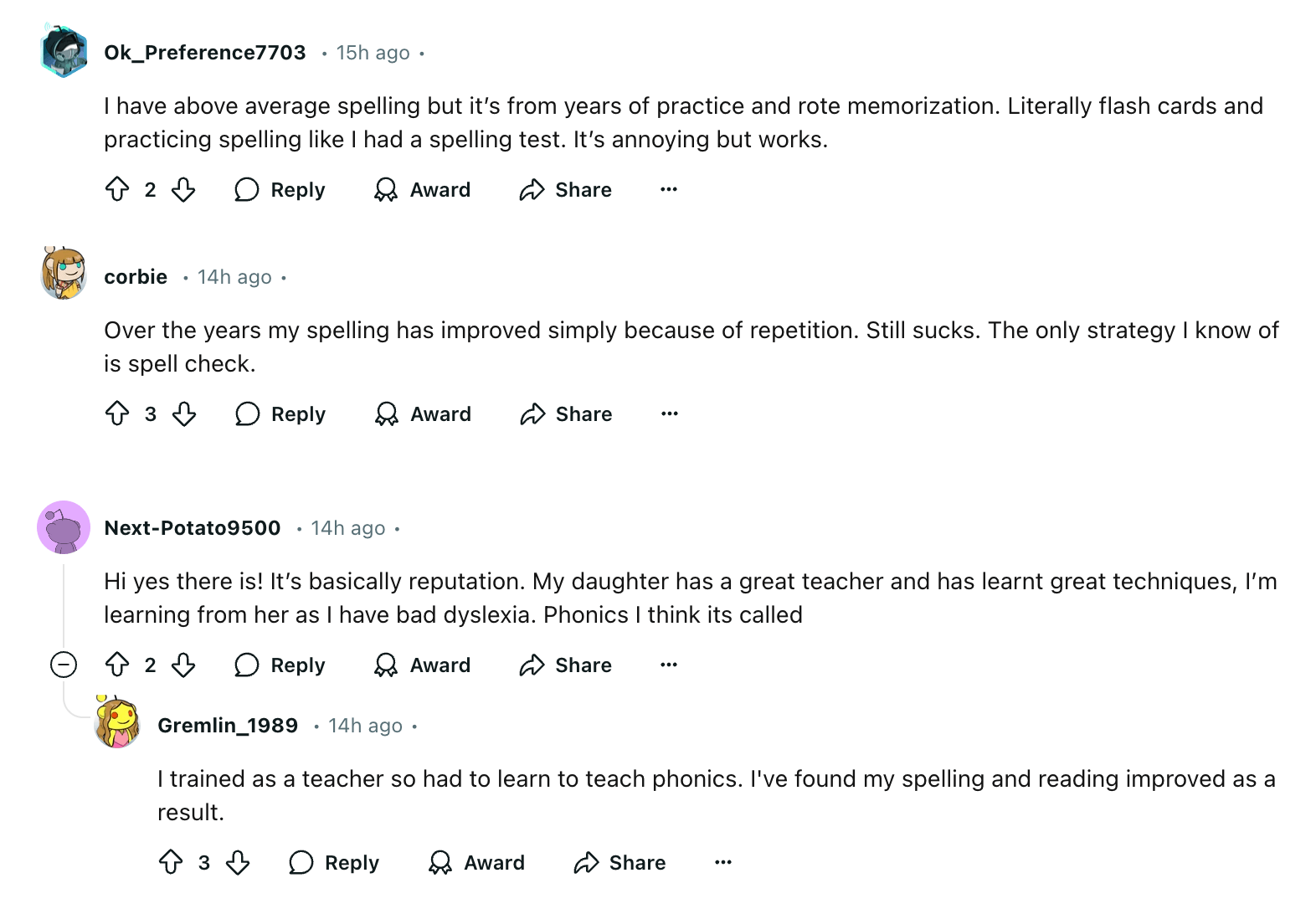
Can people with dyslexia improve their spelling? What strategies work best?
Dyslexia can make spelling difficult, but with the right strategies, improvement is possible. Strong spelling skills are important for clear communication and academic success, giving individuals confidence in both personal and professional settings.
Why Improving Spelling Matters
For those with dyslexia, improving spelling isn’t just about getting the words right; it’s about gaining confidence and reducing frustration in reading and writing. Strong spelling skills enhance communication, making it easier to express ideas clearly in school, at work, and in everyday life. Struggles with spelling can sometimes create barriers, but overcoming them allows for better focus on comprehension and creativity. As spelling improves, so do the chances of success in written communication tasks, from writing essays to sending professional emails.
Effective Strategies for Spelling Improvement
1. Phonics and Syllable Practice
Phonics-based learning focuses on understanding the sounds that letters and combinations of letters make. Breaking words down into smaller syllables can help make them more manageable and easier to remember. This method can simplify learning and reinforce word patterns.
2. Multisensory Learning
Engage multiple senses—visual, auditory, and tactile—to enhance retention. Writing words while saying them aloud, tracing letters, or using flashcards are ways to bring in multiple senses. Interactive spelling platforms, like Spelling Test Buddy and Quizlet, offer visual and auditory tools that can make learning more dynamic and fun.
3. Mnemonics and Memory Aids
Mnemonic devices, like creating associations or rhymes to remember tricky spellings, are powerful tools. For example, the word “necessary” can be remembered with the phrase “Never Eat Cake, Eat Salad Sandwiches And Raspberry Yogurt” (where the first letters of each word stand for the correct letters in “necessary”).
4. Repetition and Daily Practice
Consistent practice is key to improving spelling over time. Even dedicating a few minutes daily to spelling practice through apps like Spelling Test Buddy, or creating quizzes with Quizlet, can help solidify spelling knowledge. Repetition helps the brain encode the correct spellings into long-term memory.
5. Technology tools
Digital tools can play a crucial role in helping learners practice and improve spelling. Two examples are Spelling Test Buddy and Quizlet. Spelling Test Buddy offers a structured platform with spelling tests, quizzes, and practice features, allowing learners to track their progress and focus on challenging words. Similarly, Quizlet provides customizable flashcards and games to help users reinforce correct spellings in an engaging way.
A longer list of software and assistive technology for people with dyslexia can be found at the Dyslexia Help website, hosted at the University of Michigan.
Stories from real people
The /r/Dyslexia subreddit is a great place to find stories from people with dyslexia who have struggled with spelling and then found success with the strategies above. A great example is this post:

The comments are all aligning towards: practice more.

Stay Positive and Be Persistent
For people with dyslexia, spelling improvement takes time, patience, and persistence. Celebrating small wins along the way helps maintain motivation. With consistent practice and the use of helpful tools, progress is not only possible but also achievable.